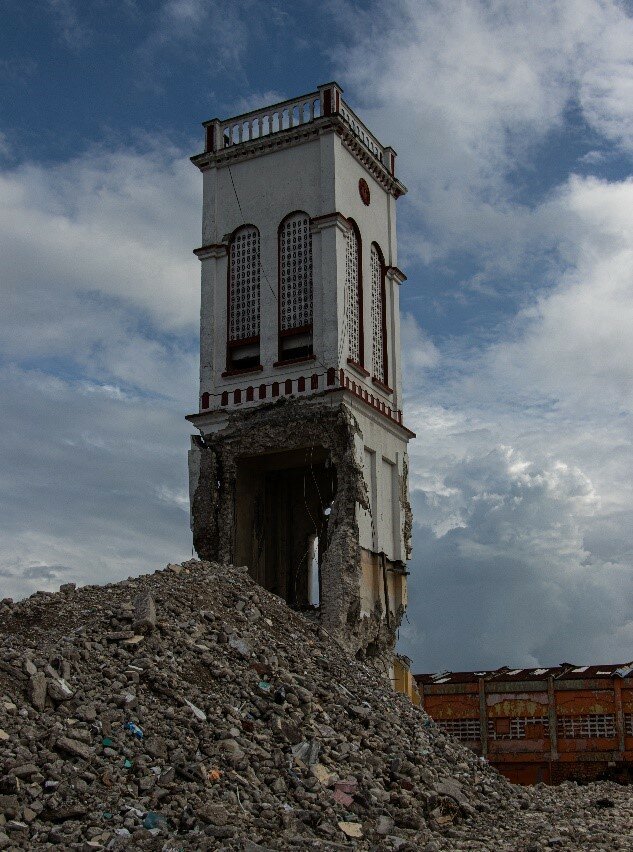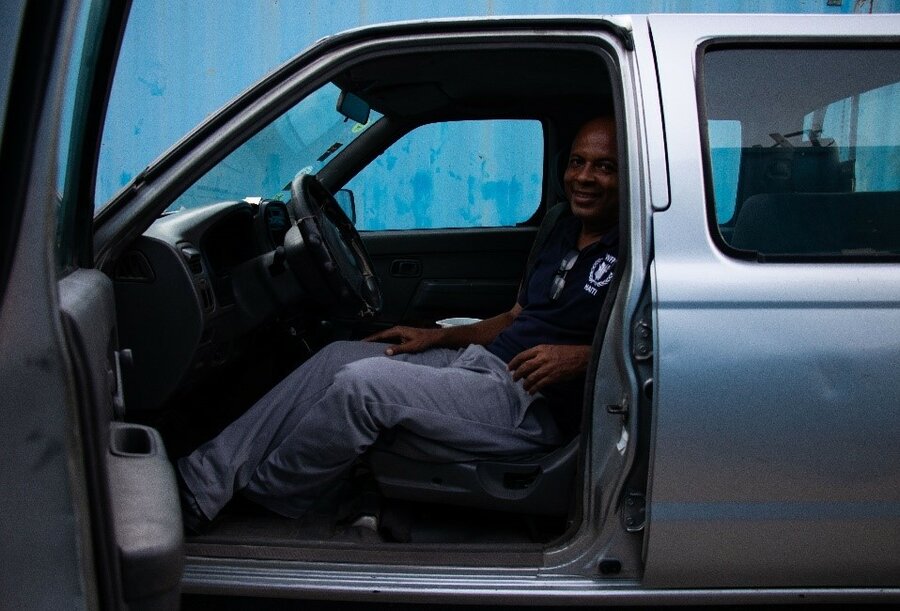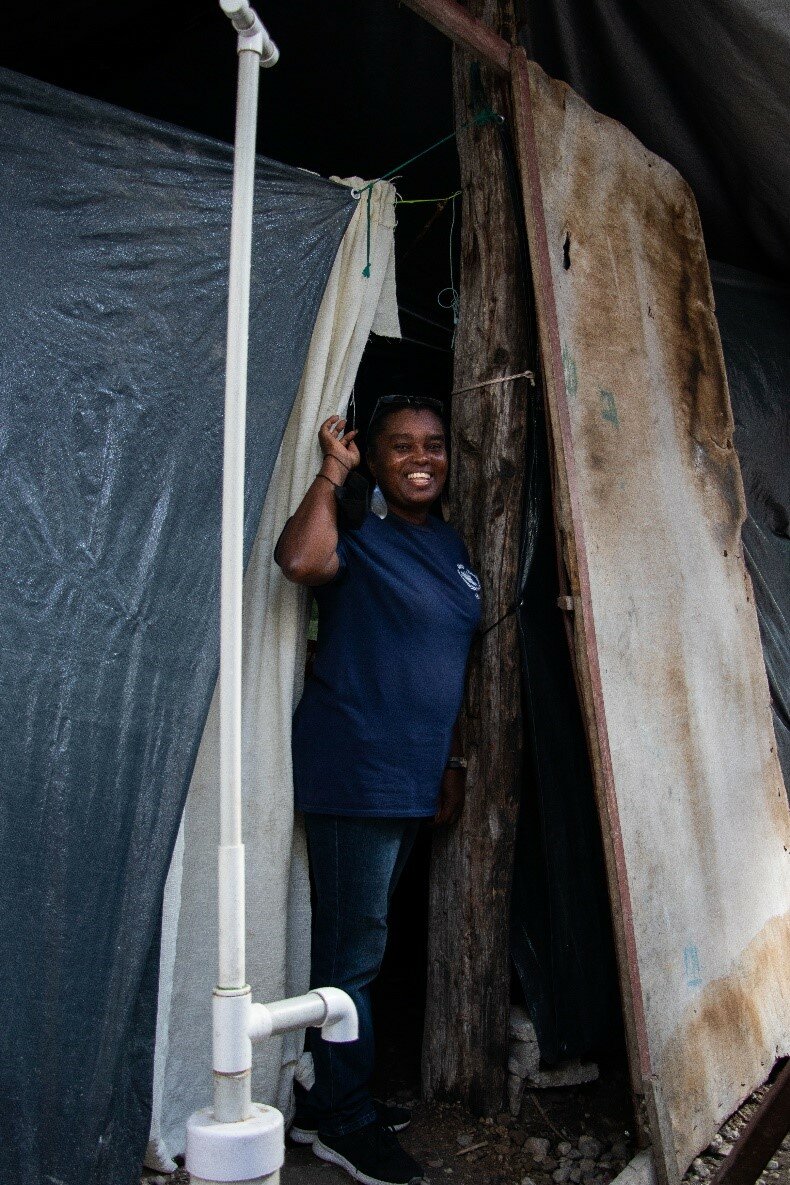How WFP staff rose to the challenge in wake of Haiti’s earthquake

Several months after a devastating earthquake hit the southern part of the country, killing more than 2,000 people, destroying livelihoods and damaging countless schools and infrastructure such as roads and bridges, people from all places and backgrounds are rebuilding their lives. Some have been helping their communities while also being shaken to the core
It is the end of the afternoon and Bertin Meance, head of what has now become the World Food Programme’s largest sub-office in Haiti, leads the daily wrap-up meeting with his team.
Most have just come back from their trying but fulfilling days, organizing food or cash distributions to help the people hit hardest by the 14 August earthquake.
Food insecurity continues to grow in the area. Each day for nearly four months, tens of thousands of people have been receiving this assistance thanks to the hard work of Bertin and his team, who have been working around the clock to orchestrate this response.
A new reality
At home, it is quite a different reality that he has been getting back to each night. “I was outside taking care of my vegetable garden when it happened. I feared for the worst, because I know that our house is not solid, but my family was fine”.
In the weeks and months that followed the earthquake, the ground continued to shake, with hundreds of aftershocks causing additional damage in the region.
Bertin and his family slept in their car for two months, fearing a reprise. “My wife was too terrified to go back into the house,” Bertin says. Local people have suffered considerable trauma. “Last week during a meeting, colleagues were sitting against a wall and suddenly jumped up, after having felt a new tremor rise from the ground,” says Pauline, a senior programme assistant working for WFP in Les Cayes.

“What I will not forget is this sense of solidarity and concern,” adds Bertin. “The first person to have contacted me was our director, Pierre Honnorat, to see how we all were. Despite this sense of loss, with my crushed house and my pickup as my new home, I felt that the whole world cared about me. I had no idea where my shoes were, felt disoriented, detached from my environment. I had a large sleep deficit.” He adds: “I didn’t spend enough time with my family and they wished I was more present. I left at dawn and returned when it was dark. But I knew they were safe and it was my duty to rebuild this heritage - helping Haiti to stand strong in the face of this kind of shock”.
Escalating needs
Others have seen their houses crumble to the ground, and have slept in temporary shelters for weeks. Marie Laura is a 49-year-old single mother working as a finance officer for WFP since early September. She had to sleep under a tent during the rainy season, after her house suffered considerable damage during the earthquake. The sole financial provider for her 73-year-old mother, younger sister, 12-year-old son and a little girl she has been taking care of since Hurricane Matthew destroyed her home in 2016, Marie Laura remembers that peculiar day.

“The floors of my house were moving and rising, and I will never forget the noise. I told my mother to run out and she did but couldn’t stand because of the shaking,” says Marie Laura. “After that, my son cried because he thought everyone he knew was dead: we called his father, his grandparents, and it took some time for him to calm down.”
After sleeping outdoors the first night, the next day with others from her neighborhood, they built a large tent. Then, just two days after the earthquake, tropical storm Grace hit the island bringing additional rain and devastation to land and livelihoods. “For a few nights we slept in the car, but my feet were swollen from sitting. But during the rainy nights I had no choice: my son is asthmatic, and the cold rains trigger his attacks. It was tough – taking care of my son, my mother and with the risk of insecurity too. Every morning when I left my son to go to work it was with a closed heart. But I knew I had to help those who had been less lucky than me”.
WFP distributed family tents to many of its staff affected by the earthquake, as well as wellbeing kits including toiletries. Collective and individual psychosocial support were also provided.
Since 14 August, WFP Haiti has reached 350,000 people with emergency food and cash in the areas worst hit by the earthquake. But needs remain acute and there is much more to be done to pave the way to recovery in these fragile locations as the hurricane season comes to an end.


